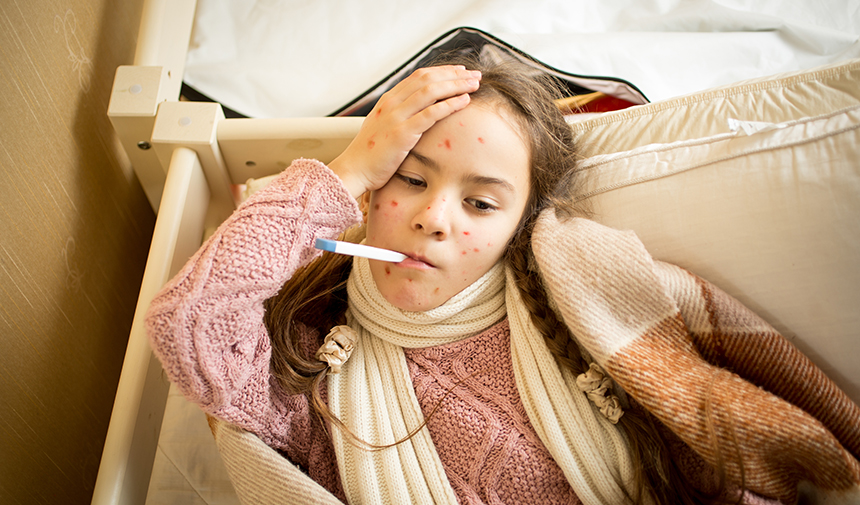Fifth Disease in Children and Precautions
The fifth disease, which is common among children, is a type of infection that is usually mild but can be a source of concern for families. Caused by a virus called parvovirus B19, it is a rash like rubella or measles. Common especially in school-age children, fifth disease can present with mild symptoms, but in some cases it can lead to serious complications. Therefore, it is important to recognize the symptoms of fifth disease and know the measures that can be taken to prevent it.
Fifth disease usually starts with symptoms such as mild fever, headache and fatigue. Within a few days, the appearance of “slapped cheeks”, which is characteristic of the disease, appears. This symptom takes the form of a marked redness and flushing of the cheeks. Later, the rash can spread throughout the body and last for several days. Children usually do not feel very ill during the fifth course of the disease and the symptoms are mild. However, in some children, especially those with a weak immune system or other health problems such as anemia, the disease can lead to more serious complications.
Fifth disease is easily transmitted through coughing, sneezing or close contact. Therefore, the spread of the disease becomes more likely when children start going to school. To prevent transmission of the disease, it is important to observe hygiene rules and limit children’s contact with other children at the first signs of illness. Measures such as hand washing, cleaning shared objects and keeping children away from crowded places can reduce the spread of the disease.
Fifth disease is usually mild and does not require special treatment. However, painkillers or antipyretics may be used on doctor’s advice to relieve symptoms such as fever or pain. It is also important to make sure children drink plenty of water and rest to relieve symptoms. If your child has symptoms of fifth disease, it is best to contact your doctor and ask about the course of the disease.
For some children, fifth disease can cause serious complications. Especially for children with weakened immune systems or those with chronic health problems, the disease can carry greater risks. In such cases, the doctor may need to monitor closely and provide additional treatment as needed. In addition, the fifth disease can be risky for pregnant women because the virus can affect the fetus. If you are pregnant and think you have been exposed to fifth disease, you should consult your doctor immediately.
In conclusion, although fifth disease is usually mild, it is a contagious infection that needs to be treated with caution. It is important for children to follow hygiene rules to prevent the spread of the disease. If parents see symptoms of fifth disease in their children, they should contact their doctor and get information about the course of the disease.



